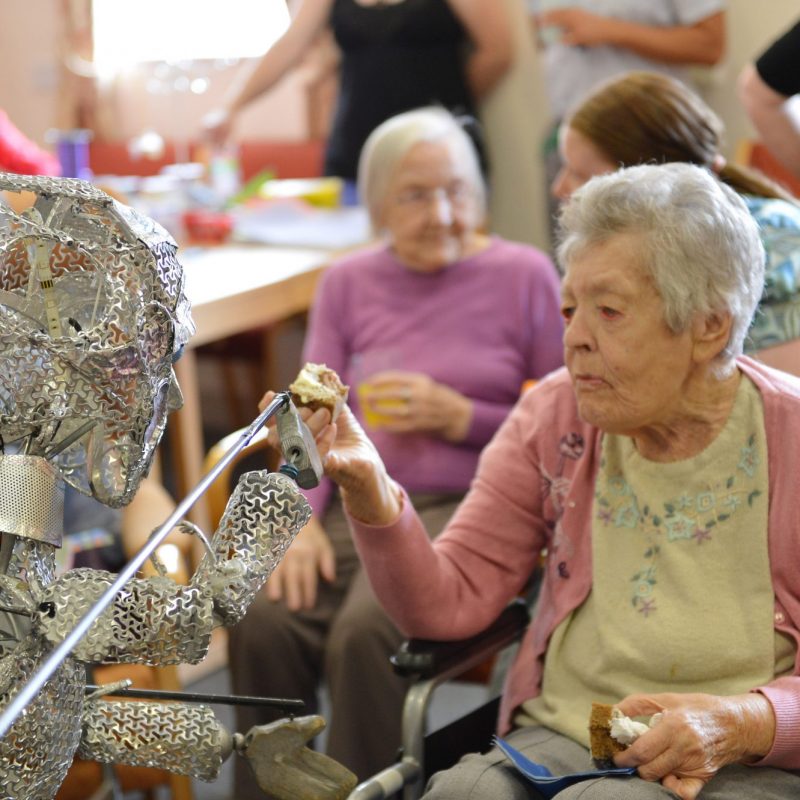Old content
This post is over 3 years old. Some of the content might be out of date. If your after something more up date, check out our latest posts. If you want to find out more about the content on this page, contact us.
She moves gently through the audience, singing directly to each person, touching hands, making eye contact. Old fingers dance to accompany the melodies. Lips move softly. As each song ends, the applause is generous. When she begins to clap, I see that someone I’d thought was asleep had simply closed her eyes to enjoy the music. When the singer announces that her last song will be by Gracie Fields, there’s a good-humoured groan and ‘Oh dear’. But they enjoy it all the same and join in with the chorus. Someone remembers the old joke turning If I’d known you were coming I’d have baked a cake to …I’d have locked the door.
It’s the second part of this afternoon’s concert. Children from the local primary school have shared their first steps in choral singing and later there will be a chance to hear and play a set of pentatonic chimes. The event is organised by City Arts as part of a three year programme to bring the arts closer to the estimated 400,000 elderly people who live in residential care. Funded jointly by Arts Council England and the Baring Foundation (on whose behalf I’m here as a trustee) this concert is all but invisible in the arts world. Next to the work seen in theatres, concert halls and galleries across the country, it could seem very slight, insignificant even. Some might think that it is (just) the ‘for everyone’ part of Arts Council England’s mission, not ‘great art and culture’.
But since none of us can know what other people experience, we have no basis on which to judge its value. There is simply no evidence on which we can assign a higher merit to what one person may feel listening to Verdi at Covent Garden as compared to what another may feel hearing Harold Arlen sung at a residential home in Nottingham. Transcendence, if that’s what we imagine this is about, does not discriminate. Actually, the comparison is meaningless although, with limited funds available for the arts, choices have to be made and we want them made on the basis of explainable, defensible reasons.
The best reason I see today is the pleasure this music has brought to lives that are often difficult and limited. The happiness in the room is almost tangible, as people of dramatically different ages interact and move one another. Its value is simply that of living in a society where people matter, from the beginning to the end of their lives.
Re-posted with permission from Francois’ blog Parliament of Dreams
